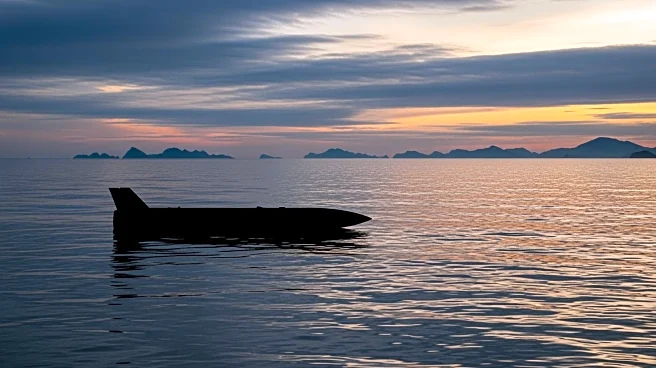What's Happening?
China has expressed strong opposition to Japan's decision to deploy medium-range missiles on Yonaguni Island, which is located just 70 miles from Taiwan. The announcement was made by Japanese Defense Minister
Koizumi Shinjiro, and it has sparked concerns from Beijing about escalating military tensions in the region. Chinese Foreign Ministry spokesperson Mao Ning criticized the move, stating that Japan's deployment of offensive weapons near China's Taiwan is a deliberate action that could increase regional tensions and provoke military rivalry. The situation is further complicated by remarks from Japan's Prime Minister Sanae Takaichi regarding Taiwan, which have been deemed erroneous by China, adding to the perceived threat. This development is part of a broader geopolitical context involving Japan's military strategy and its implications for regional security.
Why It's Important?
The deployment of missiles by Japan near Taiwan is significant as it could alter the balance of military power in East Asia, potentially leading to increased tensions between China and Japan. This move may be perceived as a direct challenge to China's influence in the region, especially concerning Taiwan, which China considers a part of its territory. The situation could lead to heightened military readiness and strategic posturing by both nations, affecting regional stability. Additionally, this development may influence international relations, as neighboring countries and global powers may need to reassess their diplomatic and military strategies in response to the evolving security dynamics. The potential for military conflict or increased diplomatic friction could have far-reaching consequences for trade, security alliances, and regional cooperation.
What's Next?
As tensions rise, it is likely that diplomatic efforts will be intensified to address the concerns raised by China's protest. Japan may seek to justify its military strategy as a defensive measure, while China could increase its military presence in the region as a countermeasure. International stakeholders, including the United States and other regional powers, may become involved in mediating the situation to prevent further escalation. Additionally, discussions within international forums such as the United Nations may be initiated to address the security implications of Japan's missile deployment. The situation will require careful monitoring as both countries navigate the complex geopolitical landscape.









